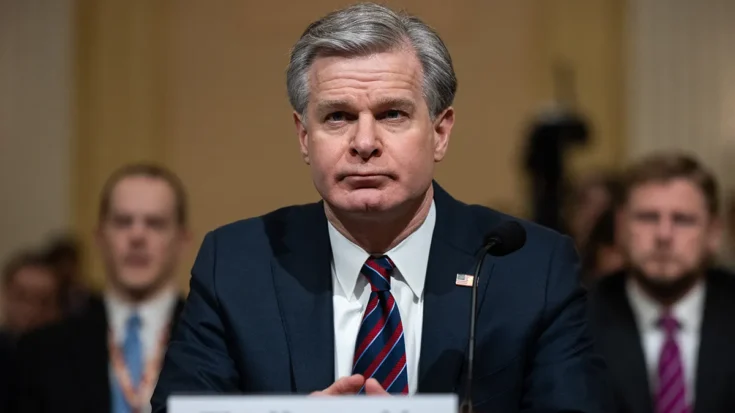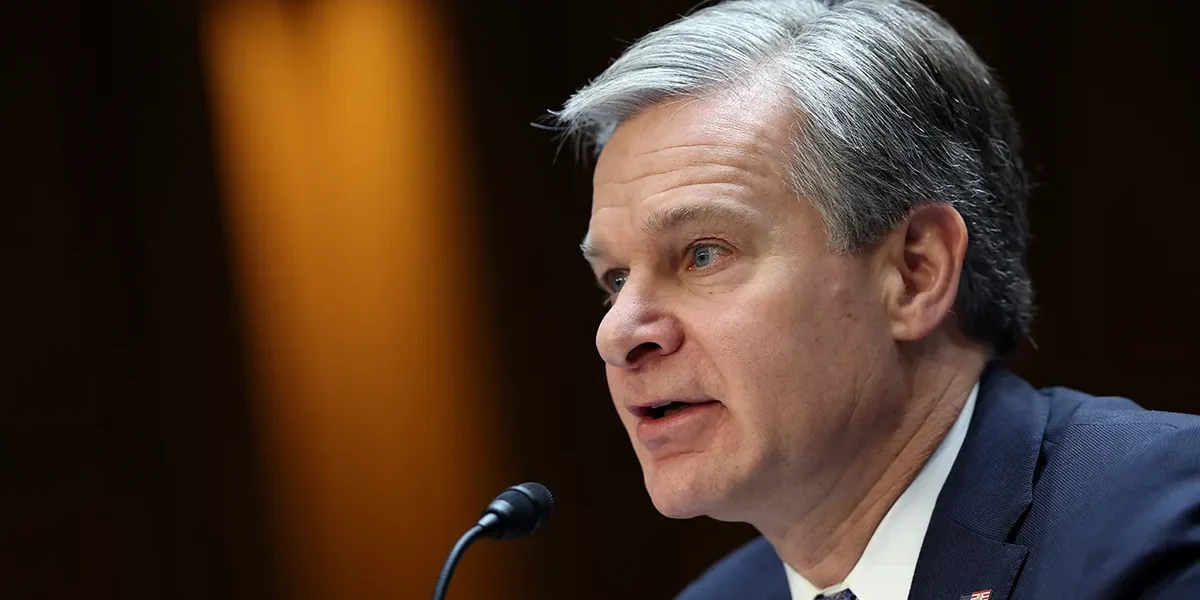The Debate Over Section 702: Balancing National Security and Privacy
As global tensions affect potential domestic threats, U.S. lawmakers grapple with the complexities of surveillance laws and civil liberties.
In a recent testimony before the House Appropriations Committee, FBI Director Christopher Wray highlighted the growing concern over potential terrorist attacks on American soil, influenced by international conflicts. Wray’s remarks come at a crucial time as Congress debates the reauthorization of Section 702 of the Foreign Intelligence Surveillance Act (FISA), which is pivotal for U.S. intelligence agencies in monitoring communications of non-Americans located overseas.
Director Wray pointed out that the current global events, especially those in the Middle East, could inspire individuals or small groups to commit acts of terrorism within the United States. More alarming, however, is the threat of coordinated attacks similar to a recent incident at a concert hall in Russia, attributed to ISIS-K. These comments underline the pressing need for robust intelligence capabilities to prevent such attacks and protect national security.

The Controversy Surrounding Section 702
Section 702 allows the U.S. government to collect the communications of foreigners outside the United States without a warrant, even when they are using U.S.-based platforms like Google or Facebook. This capability is crucial for gathering intelligence on potential foreign threats. However, the controversy arises when the communications involve Americans. Currently, if Americans are communicating with foreign targets, those communications can be collected and reviewed without a warrant, raising concerns about privacy and civil liberties.
The reauthorization of Section 702 has become a battleground with significant opposition from various quarters. Conservative House Republicans, influenced by former President Donald Trump’s directive to “Kill FISA,” argue that the legislation should include an amendment requiring intelligence agencies to obtain a warrant before accessing data involving Americans. This stance is supported by civil liberties groups such as the ACLU, which argues that Section 702 permits mass, warrantless surveillance of both Americans’ and foreigners’ communications, posing a severe threat to privacy rights.
The debate reached Congress with a bill that did not include the warrant amendment, reflecting the deep divisions over how to balance national security needs with the protection of individual privacy. The defeat of efforts to reauthorize Section 702 without reforms shows the growing skepticism within parts of the government regarding the broad surveillance powers granted to intelligence agencies.

FBI Director Wray, advocating for the unamended reauthorization of Section 702, stresses the importance of these tools in the context of increased global threats. At the same time, he faces challenges from budget cuts, with the FBI’s budget proposed to be reduced by $500 million. These budgetary constraints add another layer of complexity to the FBI’s operational capabilities amid escalating security concerns.
The ongoing debate over Section 702 of FISA encapsulates a fundamental dilemma in modern governance: how to ensure national security in an era of complex, transnational threats while safeguarding the civil liberties that define democratic societies. As threats evolve and expand, the need for effective intelligence gathering remains undeniable. However, the means by which this intelligence is gathered must continuously be assessed and adjusted in response to the legitimate concerns of the populace regarding privacy and governmental overreach.
Read More News:
- Earn Rewards While Protecting Postal Workers: Understanding Alabama’s Notice of Reward Program
- Unraveling the Canine Craze Inside the World of John Woofington and His Golden Retriever Army
As Congress continues to navigate this contentious issue, the outcome will significantly impact the effectiveness of the U.S.’s counterterrorism efforts and the privacy of its citizens. The resolution requires a nuanced approach that ensures both the security of the nation and the rights of its people are maintained, a balancing act of critical importance in today’s interconnected and digital world.




